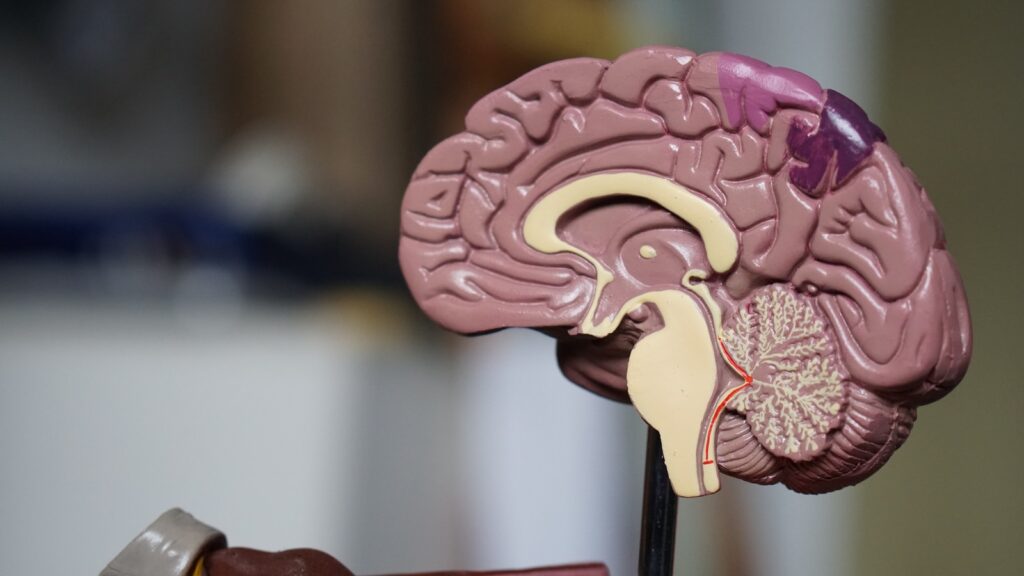Page Menu
Meningococcal meningitis is a serious infection that can cause severe brain damage or even death. It's caused by a type of bacteria called meningococcus, and it can be spread through close contact with someone who has the disease or through contact with moisture (such as saliva, mucus, or blood) from someone who has the disease.
Key Concepts and Top Takeaways
– Recognize symptoms: Be aware of fever, headache, stiff neck, and sensitivity to light.
– Seek immediate medical attention: If symptoms appear, visit a healthcare provider quickly.
– Understand transmission: Know that it spreads through respiratory droplets and close contact.
– Get vaccinated: Ensure vaccinations are up to date for meningococcal disease prevention.
– Practice good hygiene: Wash hands frequently and avoid sharing personal items.
– Monitor outbreaks: Stay informed about local meningitis outbreaks in your area.
– Educate others: Share information about symptoms and prevention with family and friends.
– Know risk factors: Be aware that college students and military recruits are at higher risk.
– Consider prophylactic antibiotics: Discuss preventive antibiotics with a doctor if exposed.
– Follow treatment plans: If diagnosed, adhere strictly to prescribed treatments for recovery.
Please Note: This post may contain affiliate links. If you click one of them, we may receive a commission at no extra cost to you. As an Amazon Associate, I earn from qualifying purchases.

Meningococcal meningitis is a serious bacterial infection of the membranes that cover the brain and spinal cord. It can be deadly, especially in young children and adults with weakened immune systems. Symptoms include fever, headache, neck stiffness, and difficulty speaking or moving your arms and legs. If left untreated, meningococcal meningitis can lead to coma or death. The best way to prevent this infection is through vaccination; however, it's still common in the United States. If you think you may have contracted meningococcal meningitis, see a doctor immediately.
The symptoms of meningococcal meningitis vary depending on the person, but can include fever, headache, neck stiffness, difficulty breathing, drowsiness, and nausea. Meningococcal meningitis is most commonly caused by the bacterium Neisseria meningitidis, which is found in the saliva and mucous of infected people. The risk factors for contracting Menningococcal Meningitis include being younger than 25 years old, having a weakened immune system due to illness or treatments such as cancer chemotherapy, and being recent immigrants to the United States. There are several types of Menningococcal Meningitis treatment available including antibiotics and surgery.
Symptoms of Meningococcal Meningitis
Symptoms of meningococcal meningitis can vary, but may include fever, headache, neck stiffness, tiredness, nausea and vomiting, constipation or diarrhea, and difficulty breathing. If left untreated, meningococcal meningitis can lead to seizures, coma and even death. Early diagnosis and treatment are critical for best outcomes.
Fever is often a common symptom of meningococcal meningitis. The fever can help to raise your body's temperature and protect you from developing other symptoms of the disease. However, if your fever is very high or lasts for a long time, it may be an indication that you have meningococcal meningitis. If you have a fever and are worried about your health, contact your doctor.
Headache is one of the most common symptoms of meningococcal meningitis. It is a sign that your brain is hurt and needs help. Headache can be severe and last for hours. Other symptoms of meningococcal meningitis can include fever, neck stiffness, vomiting, diarrhea or a rash. If you have any of these symptoms, please see a doctor right away.
Neck stiffness is another common symptom of meningococcal meningitis. The stiffness can range from mild discomfort to severe pain. Neck stiffness may also cause difficulty breathing and can be a sign of more serious problems such as brain damage or stroke. If you experience neck stiffness, it's important to see your doctor immediately.
Tiredness is a common symptom of meningococcal meningitis, and can be a sign that the person is not getting the best care. If you are feeling tired, feverish, or have a headache, contact your doctor. Meningococcal meningitis can be deadly if not treated promptly.
Nausea is also a common symptom of meningococcal meningitis. It can range from mild discomfort to intense vomiting and may be accompanied by fever, chills, and headache. In some cases, nausea can be so severe that it leads to dehydration and even death. Meningococcal meningitis is a serious infection that can kill quickly if not treated quickly with antibiotics. If you experience any of the following symptoms, please seek immediate medical attention: severe nausea, vomiting, or diarrhea; fever above 101 degrees Fahrenheit; neck stiffness; shortness of breath; or difficulty breathing.
Vomiting is one of the most common symptoms and can be a sign that the person has the disease. In some cases, people may also experience a rash or redness on their body. If you are experiencing any of these symptoms, it is important to see a doctor as soon as possible.
Constipation is another common symptom of meningococcal meningitis, and can worsen as the disease progresses. In particular, constipation may be a sign that the person has developed sepsis (a potentially life-threatening condition caused by infection). If you are experiencing constipation, it is important to consult with a medical professional to rule out other causes and ensure proper treatment.
Diarrhea is a common symptom of meningococcal meningitis. The illness can cause dehydration and can lead to serious complications if not treated quickly. Treatment includes antibiotics and IV fluids.
Meningococcal meningitis is a serious infection that can cause difficulty breathing. Symptoms of meningococcal meningitis include fever, headache, neck stiffness, and trouble breathing. Difficulty breathing may be the only symptom of meningococcal meningitis, or it may be one of several symptoms. If you have difficulty breathing, consult a doctor immediately.
Causes of Meningococcal Meningitis
Meningococcal meningitis is a serious bacterial infection that can cause fever, headache, neck stiffness, and difficulty breathing. It is most common in young children and the elderly, but it can also occur in people of any age. The cause of meningococcal meningitis is not known, but the disease is thought to be caused by a type of bacteria called Neisseria meningitidis. There are several ways to catch meningococcal meningitis, including through close contact with someone who has the disease or by being exposed to particles infected with the bacteria. Treatment for meningococcal meningitis includes antibiotics and often requires hospitalization.
Neisseria meningitidis is a bacteria that can cause meningococcal meningoencephalitis (MM), a serious form of meningitis. MM is caused by the bacterium entering the brain through the nose or throat. The most common symptoms are fever, headache, neck stiffness, and vomiting. In rare cases, people may also experience seizures or coma. If left untreated, meningococcal meningitis can lead to permanent brain damage and death. According to the Centers for Disease Control and Prevention (CDC), approximately 32,000 people are hospitalized with MM each year in the U.S., and 1 in 5 deaths from meningococcal disease is due to meningococcal meningitis.
According to the Centers for Disease Control and Prevention (CDC), approximately 32,000 people are hospitalized with measles each year in the United States. Measles is a highly contagious viral infection that can cause serious health problems, including pneumonia, encephalitis (a brain inflammation), and death. The disease is spread through exposure to respiratory secretions, saliva, or mucus from an infected person. Most people who get measles will have mild symptoms, such as fever, cough, and runny nose. However, some people may have more serious symptoms that can include ear infections, diarrhea, vomiting, and seizures. In rare cases, measles can be fatal.
Since 2003—when the CDC began tracking measles cases—the number of cases has decreased overall but remains high in certain areas of the country. In 2017 there were a total of 706 confirmed cases in the United States.
Risk Factors For Meningococcal Meningitis
According to the CDC, there are still many unanswered questions surrounding meningococcal disease. However, researchers have identified a number of risk factors that may increase a person’s chance of contracting the bacteria-caused illness.
There are a number of risk factors for contracting meningococcal disease, including being in close contact with someone who has the infection, being immune compromised, and having a weakened immune system. Other factors that increase your risk include being born to a mother who had the disease during pregnancy, traveling to areas where the disease is common, and having chronic health conditions. There is no cure for meningococcal disease, and it can be deadly. If you think you may have contracted the infection, you should seek medical attention immediately.
Close contact, such as sharing drinks or eating food, is a risk factor for meningococcal meningitis. This type of bacteria can spread through saliva and mucus, and can cause serious infections in the brain and spinal cord. There is no specific treatment for meningococcal meningitis, but it can be treated with antibiotics if it is caught early.
Being immune compromised as a Risk Factor for Meningococcal Meningitis is more common than you may think. According to the Centers for Disease Control and Prevention (CDC), approximately 1 in 5 people are at risk of contracting meningococcal meningitis, which is caused by the meningococcus bacteria. Being immune compromised means that your body’s natural defenses against infection are weakened, making you more susceptible to contracting this potentially deadly disease.
There are a few things you can do to minimize your risk of contracting meningococcal meningitis if you are already immune compromised. First, get vaccinated against the disease. The vaccine is highly effective and will help protect you from developing the illness if it does occur.
Being born to a mother who had the disease during pregnancy puts you at risk for meningococcal menin. The disease can cause severe symptoms, including vomiting, fever, and headache. If left untreated, it can be fatal. If you are ever worried about your health or that of your baby, speak with your doctor about the risks associated with being born to a mother who had the disease during pregnancy.
Traveling to a new country can be an exciting and enjoyable experience, but it can also be a risky one if you are susceptible to meningococcal menin. Meningococcal menin is a type of meningitis caused by the bacteria Neisseria meningitidis. It is one of the most common types of bacterial meningitis, and can be deadly if not treated quickly with antibiotics.
There are several things that you can do to reduce your chance of getting meningococcal menin while traveling. First, make sure to get vaccinated against the disease. This vaccine is available both as a single dose shot or as part of a combination vaccine against other diseases, such as measles, mumps, and rubella. The vaccine is highly effective in preventing Menin, and most people who receive it will have no symptoms at all.
Chronic health conditions put people at an increased risk for contracting meningococcal meningitis, a life-threatening infection caused by the bacterium Neisseria meningitidis. According to the Centers for Disease Control and Prevention (CDC), rates of meningococcal disease have been on the rise in recent years, with more cases reported in children and adults ages 20 to 49 than any other age group. In fact, the CDC has warned that this increase could be due in part to growing awareness of the disease and its dangers, as well as improvements made in diagnosing and treating it.
People who have chronic health conditions – such as asthma, diabetes, or heart problems – are more likely to develop serious infections than those without these conditions.
Complications From Meningococcal Meningitis
Complications from meningococcal meningitis can vary enormously in severity and can quickly become life-threatening. The most common complications are inflammation of the brain and spinal cord, which can result in severe disability or even death. Other serious complications include inflammation of the heart, blood poisoning, pneumonia, and seizures. There is no cure for meningococcal meningitis, only treatments that aim to prevent further complications.
Complications from meningococcal meningitis can include:
1. Brain damage, including swelling of the brain and seizures. Brain damage is a common complication of meningococcal meningitis. The severity of the damage varies, but can range from mild to severe. In some cases, the damage may not be noticeable at first. However, over time the effects of the brain damage may become more apparent. Brain damage can cause difficulties with memory, thinking, and communication. It can also lead to problems with physical abilities and mobility. If left untreated, brain damage may result in permanent disability or death.
2. Blood poisoning, which can lead to organ failure or death. Blood poisoning is a serious complication of meningococcal meningitis. The bacteria that cause meningitis can invade the blood, causing a rapid increase in blood pressure and heart rate as well as fever. Blood poisoning can also lead to renal failure, brain damage, and death. Treatment for blood poisoning includes antibiotics and intensive care.
3. Deafness is a common complication from meningococcal meningitis. People with deafness may experience difficulty communicating and hearing, which can make them more susceptible to other complications from the disease. Deaf people are also at risk for other medical problems, such as infections and malnutrition.
4. Eye damage, including blindness. Meningococcal meningitis (caused by the bacterium Neisseria meningitidis) can cause a wide range of complications, including ear and eye infections. In rare cases, mumps can also cause eye damage. The most common complication from meningococcal meningitis is brain damage, which affects up to 25 percent of patients who develop the infection.
Eye damage is a relatively rare complication of meningococcal meningitis, accounting for only 1-2 percent of all cases. However, it can be very serious and result in blindness or other permanent eye damage. There are several factors that increase your risk of developing eye damage from meningococcal meningitis: having a weakened immune system due to disease or injury; having a prior history of ocular infection; being younger than 50 years old; and having certain ethnic background (e.
5. Rapid deterioration of neuromuscular function in the extremities, leading to amputation or paralysis. The deterioration of neuromuscular function as a complication from meningococcal meningoencephalitis has been well documented. The onset can be sudden and may range in severity from asymptomatic to requiring mechanical ventilation and even death.
The main causes of neuromuscular dysfunction are due to the inflammation and damage that meningococcal meningoencephalitis causes to the brain, spinal cord, and peripheral nerves. This damage can interfere with normal nerve cell function, leading to a number of debilitating complications such as paralysis and even death. In those who survive, there is a high chance of long-term sequelae including difficulties with mobility, speech, cognition, and memory.
The best way to prevent this type of complication is through early detection and treatment of meningococcal meningoencephalitis.
6. Inflammation of the brain and spinal cord. Inflammation of the brain and spinal cord can be a complication from meningococcal meningitis. This inflammation can cause serious disability or death. Meningococcal meningitis is an infection of the lining of the brain and spinal cord.
The most common cause of meningococcal meningitis is Streptococcus pneumoniae, a bacterium that can also cause other infections, such as ear infections. Symptoms of meningococcal meningitis include fever, headache, neck stiffness, and vomiting. X-rays may show an area in the back of the skull that appears to be swollen (known as a ventriculomegaly). Treatment for meningococcal meningitis includes antibiotics and supportive care. If symptoms are severe or if there is evidence of brain or spinal cord inflammation, patients may require surgery to remove the inflamed area.
7. Inflammation of the heart. Meningococcal meningitis is a serious bacterial infection that can lead to inflammation of the heart. Inflammation of the heart can be a complication of meningococcal meningitis, and can occur in up to 30 percent of cases.
The most common type of heart inflammation caused by meningococcal meningitis is pericarditis, which is an inflammation of the sac around the heart. Other types of heart inflammation caused by meningococcal meningitis include myocarditis (a severe form of cardiac muscle inflammation) and valvular disease (a problem with the valves that open and close the chambers in your heart). In some cases, inflammatory cells from the infection spread to other parts of the body, including the brain and lungs. If left untreated, meningococcal meningitis can lead to death.
8. Pneumonia is a serious complication that can occur after contracting meningococcal meningitis. In most cases, pneumonia is caused by the bacteria invading and damaging the lungs. This can lead to serious respiratory problems and even death. If you or someone you know has contracted meningococcal meningitis, be sure to seek immediate medical attention if you start to experience any of the following symptoms: fever, shortness of breath, coughing up blood, chest pain, or confusion.
9. Seizures are another common complication from meningococcal meningitis. The incidence of seizures is about 10% in patients with untreated meningococcal meningitis, and about 50% in patients who receive treatment with antibiotics. Seizures are often preceded by headache, fever, and neck stiffness. Most seizures occur within the first 6 weeks after infection, but they can also occur up to several months later. In some cases, seizures can be fatal.
Treatment for Meningococcal Meningitis
The most common form of meningococcal infection is caused by the Meningococcus bacteria. Treatment usually involves antibiotics and often includes surgery to remove the infected part of the skull. However, some people may not need any treatment. There are a number of ways to prevent meningococcal infections, including getting vaccinated against the bacteria.
Antibiotics have been shown to be an effective treatment for meningococcal meningitis. Early diagnosis and treatment of the infection with antibiotics is key to successful outcome. The most commonly used antibiotics for this purpose are penicillin, amoxicillin/clavulanate, and cefuroxime axetil. Treatment typically involves a series of doses over a few days, depending on the severity of the infection. If left untreated, meningococcal meningitis can result in brain damage or even death.
There are three types of meningococcal disease: A, B, and C. Meningococcal A causes the most cases of meningitis and is the most common type of meningitis in the United States. Meningococcal B causes less cases of meningitis but is more likely to cause death. Meningococcal C is a rare form of meningitis that occurs mostly in young children.
There are two main ways to prevent or treat meningitis: through early diagnosis and through treatment with antibiotics.
Common Questions About Meningococcal Meningitis
How do you get meningococcal meningitis? Meningococcal meningitis is an infection of the meninges, the protective coverings of the brain and spinal cord. It can be deadly in young children and adults, although it is less common in these groups than other forms of meningitis. The most common way to get meningococcal meningitis is through contact with saliva or mucus from someone who has the disease. Other ways to get the disease include close contact with a person who has the bacteria on their skin or breathing in spores that have come off the person. There is no vaccine available for this type of meningitis, which is why it’s important to take steps to avoid getting it in the first place.
What are the first signs of meningococcal? Meningococcal disease is an infection that can cause serious problems, including meningitis (an inflammation of the lining of the skull and spinal cord), septicaemia (severe blood poisoning), and death. The first signs of meningococcal may include a fever, headache, neck stiffness, and a rash. If you think you may have contracted Menigococcus, see your doctor as soon as possible for testing and treatment.
What is the difference between meningitis and meningococcal? Meningitis is an inflammation of the meninges, the protective sheath that surrounds the brain and spinal cord. Meningococcal disease (also called meningococcal meningitis) is a serious infection caused by the bacterium Neisseria meningitidis. Symptoms may include a fever, headache, neck stiffness, nausea, vomiting, and diarrhea. In severe cases, seizures or coma may occur. Treatment typically includes antibiotics and supportive care. Meningitis can be fatal in rare cases.
Can you survive meningococcal? The answer is yes, but it's not easy.
Meningococcal bacteria can cause severe infection that can lead to death in rare cases. However, with the right treatment, most people recover without any long-term effects.
There are a few things you can do to increase your chances of surviving meningococcal disease:
-Get vaccinated against the disease if you're at risk. The Centers for Disease Control and Prevention (CDC) recommends two doses of MenACWY vaccine for people aged 11 or older.
-Stay healthy overall by avoiding close contact with people who are sick, staying away from crowded areas, and washing your hands often.
-If you develop symptoms of meningococcal infection, see a doctor as soon as possible. Early diagnosis is key to successful treatment.
Which population is at highest risk for meningococcal meningitis? Meningococcal meningitis is a serious disease that can be deadly if not treated quickly. The Centers for Disease Control and Prevention (CDC) reports that meningococcal meningitis is most commonly caused by the Neisseria meningitidis bacteria, which is found in the nose and throat of many people. However, it can also be spread through contact with respiratory secretions, such as saliva or mucus, from an infected person.
According to the CDC, children are at highest risk for developing this form of meningitis because their immune systems are still developing. Older adults also tend to be at higher risk for developing this form of meningitis, as they may have weakened immune systems due to age or medical conditions. In addition, people who have HIV/AIDS or other chronic diseases are at increased risk for developing this form of meningitis.
What gender is most affected by meningitis? As many as 15% of all cases of meningitis are caused by bacteria that specifically attacks the male brain and spinal cord. This is particularly true in young males, who are more likely to have a serious case if they are not treated early on. In fact, the mortality rate for meningitis in young males is almost three times that of their female counterparts.
The reason for this is not well understood, but it may have something to do with the anatomical differences between the sexes. Women’s immune systems typically react more strongly to bacteria and viruses, while men’s immune systems tend to be less reactive. Additionally, there may be a genetic component involved – some people seem to be more susceptible to meningitis than others.
Who is at risk of meningitis? Meningitis is a serious bacterial infection of the meninges, which are the protective covering of the brain and spinal cord. Meningitis can be diagnosed with a simple blood test. However, even if a person does not have meningitis, he or she may still develop complications from it, including hearing loss or stroke.
Meningitis is most common in young children and elderly adults, but it can also occur in anyone. The risk of meningitis increases as someone age, especially if they have other medical conditions or are overweight. Persons at increased risk for developing meningitis include those who are HIV-positive; those who have received an organ transplant; those who have cancer; and those who have had close contact with someone who has meningitis.
What time of year is meningitis most common? Meningitis is a common viral infection that can cause serious brain and spine infections in adults, especially in the winter. In the U.S., meningitis is most commonly seen during the winter months, when people are more likely to get sick from other cold-related illnesses.
What are the 3 types of meningitis? There are three types of meningitis: bacterial, viral, and fungal. Each type causes a slightly different form of the disease, and there is usually no cure. Meningitis can be deadly if not treated quickly.
Bacterial meningitis is the most common type of meningitis, and it's caused by bacteria invading the brain or spinal cord. Symptoms include headache, fever, vomiting, diarrhea, and confusion. Bacterial meningitis can be fatal in about 10% of cases.
Viral meningitis is less common than bacterial meningitis, but it's also more dangerous. Viral meningitis infections are often spread through contact with respiratory secretions (like saliva or mucus), semen, or blood.
Why is meningococcal Septicaemia a life-threatening condition? Meningococcal Septicaemia is a life-threatening condition caused by the meningococcus bacteria. It can affect any age group, but is most commonly seen in young children and teenagers. The bacteria can spread through contact with respiratory secretions, such as saliva or mucus, from an infected person. Meningococcal Septicaemia can also be passed on through sexual contact, childbirth, and blood transfusions. If left untreated, the disease can lead to death. There is currently no cure for meningococcal Septicaemia, but treatment with antibiotics can help to improve the patient's chances of survival.
Is pneumococcal the same as meningococcal? The two types of meningococcal bacteria are pneumococcus and meningococcus. The main difference between the two is that pneumococcus is a less serious type of bacteria that can cause illnesses such as colds, sinus infections, and earaches, while meningococcus is a more serious type of bacteria that can lead to meningitis and even death. However, pneumococcal and meningococcal bacteria are very similar in many ways. For example, both types of bacteria can cause pneumonia, an infection of the lungs. And both types of bacteria can be spread through contact with respiratory secretions, such as saliva or mucus.
Can you get meningitis from kissing? Meningitis is a serious infection of the brain and spinal cord. It can be spread through contact with saliva, mucus, or blood from someone with the disease. Kissing can create a risk for meningitis because other people's saliva and mucus can enter your mouth and nose. If you are infected with meningitis, you may experience fever, headache, stiffness, nausea, vomiting, or difficulty breathing. If left untreated, meningitis can lead to death.
Can you get meningococcal if you have been vaccinated? Yes, there is a chance that you can contract the illness if you have been vaccinated. The disease is caused by a type of bacteria, and it can cause serious problems including death. However, it is important to note that even though the vaccine may protect you from contracting the illness, it does not guarantee immunity. If you are worried about your immunity or would like to be sure you are protected, speak with your healthcare provider.
What age is meningococcal vaccine given? Meningococcal vaccine is available as a shot for infants and young children, as well as for adults. The vaccine is given in two doses, at 2 and 4 months old. It’s important to get the first dose as soon as possible after your baby’s birth, so that he or she will have the best chance of being protected from the disease. Meningococcal disease can be deadly if not treated quickly.
How is meningococcal meningitis prevented? There are several ways to prevent meningococcal meningitis. The most effective way to prevent the disease is through vaccination, which has resulted in a 99 percent reduction in incidence since the vaccine was introduced in 1996. However, even with vaccination, meningococcal meningitis remains a serious health threat for people who are at risk for getting it, such as those with weakened immune systems or chronic illnesses such as arthritis.
Is meningococcal meningitis airborne? Meningococcal meningitis is a serious bacterial infection that can be spread through the air. There is currently no vaccine or treatment for meningococcal meningitis, and it can cause severe damage to the brain and spinal cord. Because of this, it is important for people who are susceptible to this infection (e.g. young children, older adults) to get vaccinated against it.
While there is still some debate about whether meningococcal meningitis is actually airborne, there is evidence that it can be spread through close contact with someone who has the disease. In order to prevent the spread of this infection, people should always practice good hygiene and avoid close contact with those who are infected with meningococcal bacteria.
What is the fatality rate of meningitis? Meningitis is a serious infection that can lead to death in up to 25% of cases. It is most commonly caused by the bacteria Neisseria meningitidis, but it can also be spread through contact with saliva or mucus from an infected person. Meningitis affects the brain and spinal cord, and can be fatal if not treated quickly. There is no vaccine available for meningitis, and treatment depends on the severity of the infection. Early diagnosis and treatment are key to preventing fatalities from this infection.
In conclusion, meningococcal meningitis is a serious disease that can lead to death if not treated properly. It is important to be aware of the symptoms and risk factors associated with it in order to get treatment if needed. There are also complications that can occur as a result of meningococcal meningitis, so it is important to be aware of those as well.

Kevin Collier is a seasoned health writer at Otchut.com, specializing in over-the-counter medicines, common medical ailments, and general health topics. With a background in healthcare and a passion for making medical information accessible, Kevin aims to empower readers with knowledge to make informed health decisions. When he's not writing, he enjoys researching the latest in health trends and advocating for wellness in his community.







